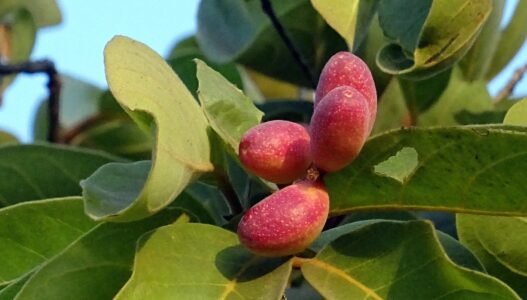Haritaki, scientifically known as Terminalia chebula, is a revered herb in the ancient system of Ayurveda, celebrated for its profound impact on overall health and well-being. Also known as “Harad” or “Chebulic Myrobalan,” Haritaki holds a special place in traditional Ayurvedic formulations, including the renowned Triphala. Let’s embark on a journey to explore the historical significance, nutritional components, and the diverse health benefits of this timeless Ayurvedic gem.
Historical Significance:
Haritaki has been a cherished herb in Ayurvedic medicine for thousands of years. Mentioned in classical texts like the Charaka Samhita and Sushruta Samhita, Haritaki is revered for its role in promoting longevity, enhancing digestion, and addressing various health concerns.
Nutritional Profile:
Haritaki is rich in bioactive compounds that contribute to its therapeutic properties:
- Chebulinic Acid:
- This compound is believed to have antioxidant and anti-inflammatory properties, contributing to Haritaki’s potential health benefits.
- Tannins:
- Tannins in Haritaki are known for their astringent properties, which may aid in promoting digestive health and regulating bowel movements.
- Gallic Acid:
- Gallic acid in Haritaki has been studied for its potential anti-cancer and anti-inflammatory effects.
Health Benefits:
1. Digestive Support:
- Haritaki is renowned for its positive impact on the digestive system. It is traditionally used to address various digestive issues, including constipation and indigestion.
2. Detoxification:
- As a potent detoxifying agent, Haritaki is believed to help eliminate toxins from the body, supporting overall cleansing.
3. Respiratory Health:
- Haritaki is considered beneficial for the respiratory system. It may help alleviate respiratory conditions and support lung health.
4. Anti-Inflammatory Effects:
- The anti-inflammatory properties of Haritaki may contribute to its traditional use in managing inflammatory conditions.
5. Heart Health:
- Some studies suggest that Haritaki may have cardiovascular benefits, including potential cholesterol-lowering effects.
Forms of Consumption:
- Powder:
- Haritaki is commonly available in powdered form, making it easy to incorporate into various preparations or consumed with water.
- Capsules/Supplements:
- Haritaki supplements, including capsules and extracts, are available for those seeking standardized doses.
Precautions:
- While Haritaki is generally considered safe for most people, pregnant or nursing women and individuals with specific health conditions should consult with a healthcare professional before incorporating it into their routine.

